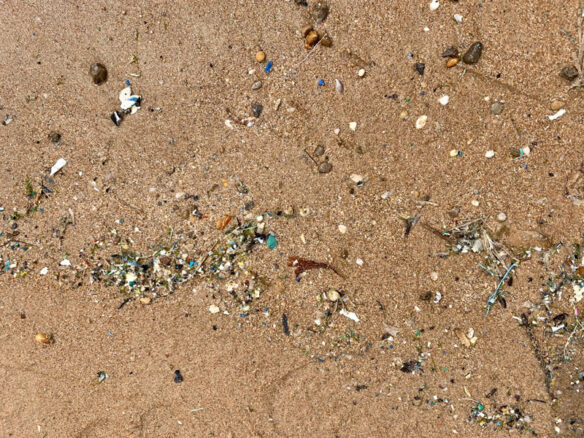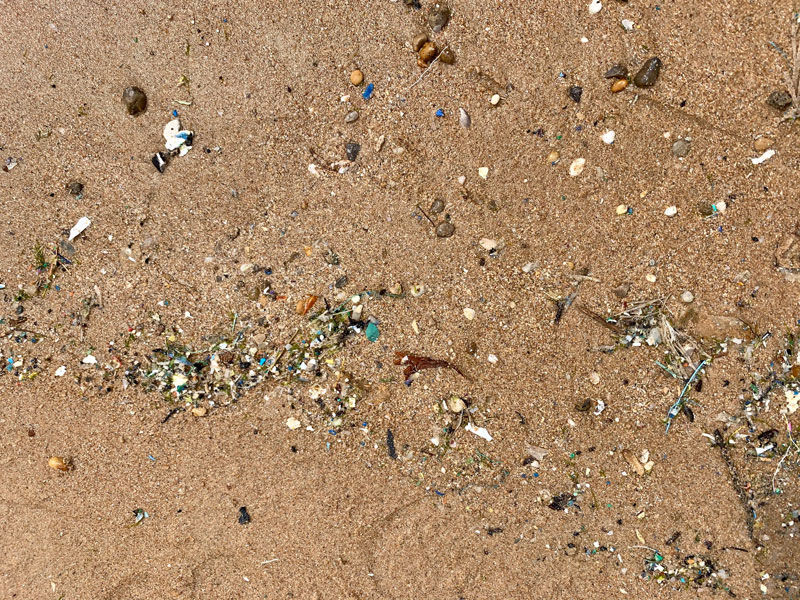
Microplastics on beach. Photo: © SAF — Coastal Care.
“The unprecedented plastic waste tide plaguing our oceans and shores, can become as limited as our chosen relationship with plastics, which involves a dramatic behavioral change on our part…” — Claire Le Guern, author of “Plastic Pollution: The Great Plastic Tide” ©-2009.
Excerpts;
Levels of plastic contamination has been found in samples of popular seafood such as prawns, oysters and crabs, with the highest content found in sardines, according to University of Queensland research.
“We found polyvinyl chloride—a widely used synthetic plastic polymer—in all samples we tested, but the most common plastic in use today—polyethylene—was the highest concentrate we found,” Ms Ribeiro said…
Read Full Article, PhysOrg (08-05-2020)
Microplastics found in a quarter of San Diego estuary fish; Science Daily (03-18-2020)
Taste, not appearance, drives corals to eat plastics; Duke University (10-24-2017)
Why do ocean animals eat plastic? National Geographic – MSN (12-05-2019)
Video captures moment plastic enters food chain, BBC News (03-11-2017)
A scientist has filmed the moment plastic microfibre is ingested by plankton, illustrating how the material is affecting life beneath the waves. The footage shows one way that plastic waste could be entering the marine and global food chain…
Microplastic pollution in oceans is far worse than feared, say scientists; Guardian UK (03-12-2018)
Newly identified fish nurseries are choked with plastic; Smithsonian Magazine (11-12-2019)
A new study reveals that it’s not just adult sea animals that are getting a gullet full of plastic. Larval fish are inundated with plastic fragments in their nursery habitats and they’re eating those pieces along with their natural food sources…
Scientists predict the size of plastics animals can eat; PhysOrg (03-27-2020)
Plastic Pollution: When The Mermaids Cry, The Great Plastic Tide, Coastal Care
Washed out on our coasts in obvious and clearly visible form, the plastic pollution spectacle blatantly unveiling on our beaches is only the prelude of the greater story that unfolded further away in the world’s oceans, yet mostly originating from where we stand: the land…









